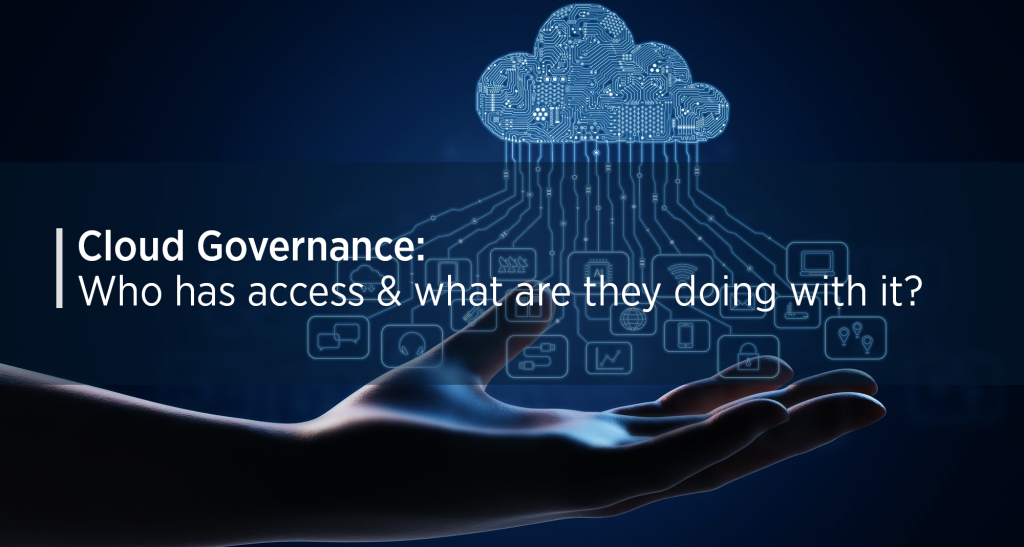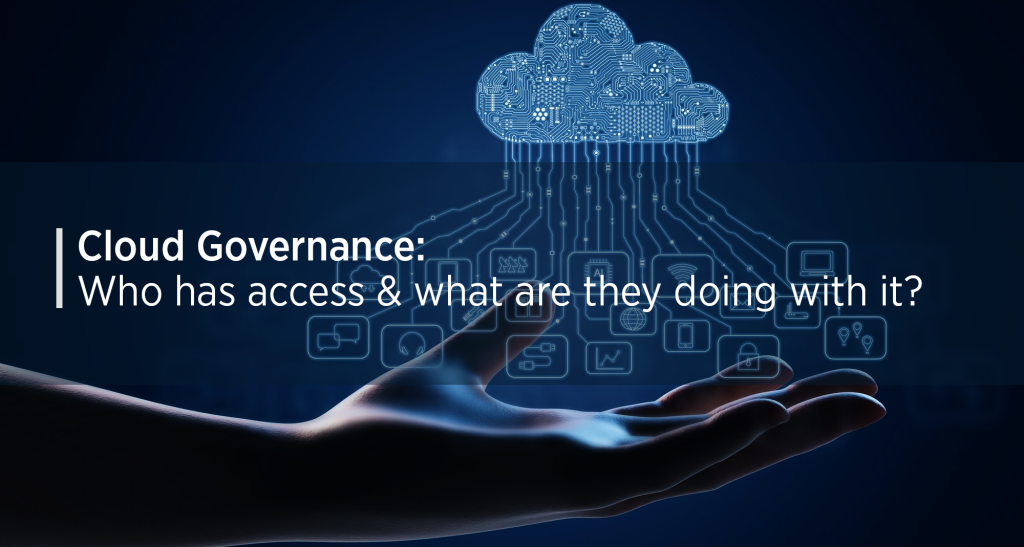
Access to the cloud for running business and managing applications has made life easier for organizations. Undoubtedly, the exceptionally convenient cloud environment helps you identify the data security risks and safely vault the confidential data. Cloud governance is adopted, managed, and regulated to enhance data security to address technical glitches or malicious attacks through identity and access management.
Keeping a check on identity-based security issues is a basic IT & cybersecurity hygiene
Avancer Corporation, the multi-system integrator and pure play IAM consulting service provider, has built identity bridge to secure confidential data. Besides, the user information, multiple user accounts, and sensitive information are evaluated and then securely stored through cloud governance policies. Identity bridge is a custom data governance system that acts as the framework of rules & protocols for cloud data governance preferred by many businesses.
Cloud governance: Introduction, implication, and implementation
The cloud governance system is becoming significant for consumers and businesses alike. From employees’ end-user standpoint, the accessibility to a cloud environment can simplify their experience and ease their work efforts. Whether it is quick one-touch access to the data or keeping the applications and other services organized and secure, cloud data protection becomes very important for administrators. Only with a protected and solid cloud governance implementation, not just the upper rungs of the company but all the employees (middle management, team members, and individual contributors) can experience the safe & secure landscape equally.
Here are some of the significant highlights of the cloud governance system that need to be understood initially:
Security and compliance management
Cloud governance provides a comprehensive suite to manage the security landscape. It includes risk management, data encryption, identity & access management, application security, and contingency planning. Additionally, cloud data governance combines business objectives and compliance regulations to strengthen the organization’s overall security posture.
Operations Management
Operations management dictates how services are delivered and what controls can be utilized for workflow improvement and program efficiency.
For instance, the rules and processes should be employed to onboard new applications or workloads running in the cloud. The purpose of operations management is to regulate risk & compliance policies before the applications or the organization uses any data.
Based on constant data security checks and reviews, organizations can prevent security issues and vulnerabilities from entering their cloud environments. Besides, cost monitoring and performance management are the influential segments of operations management that add value to the cloud governance system.
Performance management
Monitoring applications and infrastructure resources are included in the performance management of the cloud data governance system. The whole idea of managing applications and resources is to ensure the efficiency of cloud infrastructure and provide the expected levels of IT services. To execute the performance management tasks, metrics like the number of connected users, volume of simultaneous database transactions, and latency to retrieve resources can be considered.
Data Management
When it comes to data collection, storage, and assessment, the governance practices within the cloud environment need to be pre-defined. The lifecycle of data stored in the cloud gets identified before effective data management. To elaborate further, the agility and scalability of an organization increase by managing the data through cloud governance.
Apart from this, these cloud security model helps application developers, data owners, and product managers to understand how to protect data based on its classification. Additionally, it is possible to bifurcate the data after understanding the use cases from one or more providers. For instance:
- SaaS and cloud apps protection
- Disaster recovery-based data management
- Compliance & data governance
Financial Management
Managing infrastructure by estimating the financial sense to avoid higher expenses is essential. In other words, controlling cloud costs is another consideration that gets defined in the framework of the financial management principle of cloud data governance to access detailed information about cost estimation. However, it is necessary to set realistic policies, cost alerts, and sound license reviews/management so that the cloud environment usage limit reach notifications are rolled out timely.
Implementing cloud services is effectively executed when handled strategically, keeping in mind the organization’s requirements, security, and advanced parameters.
Identifying the multiple cloud security challenges that impact the organization is beneficial for improving data management, data protection, and error-free workflow management.
The easiest way to help businesses manage the cloud environment is to avail third-party services to align cloud governance goals in a customized manner. The cloud security governance experts handling cloud environment functions consistently implement corporate policies.
Furthermore, the review phase of methodology is crucial to establish a future vision of cloud adoption strategy. During this step, the scope of the cloud environment, deliverable completion, and other decision-making functions are finalized. After aligning all the steps of cloud data governance, the experts execute the best practices and configuration plan of implementation. This phenomenon of data governance results in concrete data security, storage, and management solution in the cloud environment.
Among the deliverables of cloud governance, security, cost, operations, performance, and deployment are the focused criticalities addressed by the team of cloud governance third-party service providers. In the subsequent stages of the strategy and cloud adoption plan, the existing security and operations’ implementation are discussed, further embarking Enroute roadmap of managed cloud governance.
How does Avancer help businesses with a well-tailored cloud governance framework?
At Avancer, our IT Security specialists manage IAM services, cloud governance, data scanning, SSO, multifactor authentication, password management, and other solutions. Our clients rely on us to automate cloud environment, implement cloud governance policies, and provide IT security consultation.
If you have been searching for a transparent, realistic, and an effective cloud governance system, connect with our experts at info@avancercorp.com.

